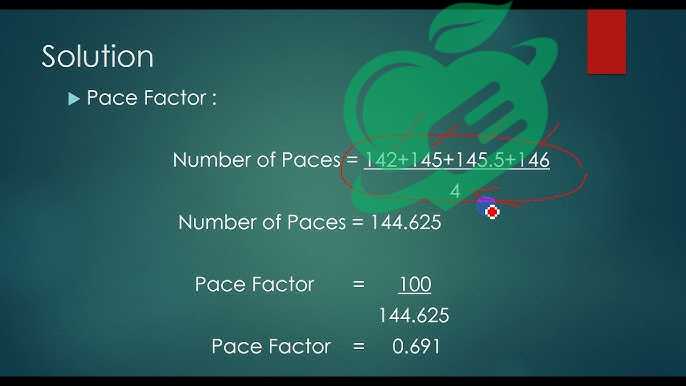
Walking is an enjoyable and simple way to exercise that positively impacts both your physical and mental well-being and Calories. You can do it outside, inside, or on an inclined treadmill to increase calorie expenditure.
To maintain good health and prevent diseases, the Physical Activity Guidelines for Americans advise that adults should engage in at least 150 minutes of moderate-intensity exercise, 75 minutes of vigorous-intensity aerobic activity, or a suitable mix of both each week.
The typical amount of calories a person expends while walking differs based on several factors, including weight, walking speed, and the distance covered. For instance, a person weighing 140 pounds would generally burn 64 calories for every mile walked at a moderate pace of 2.8 miles per hour, while someone who weighs 200 pounds would burn 87 calories over the same distance and speed.
A person’s age and the kind of surface they walk on (such as a flat sidewalk versus an incline) can also influence the total calories expended.
Read also: What are the benefits of good stress – pros and cons.
How Pace, Weight, and Distance Factor In

The number of calories you burn while walking is influenced by your speed, the distance you cover, and your weight. The Compendium of Physical Activity, a valuable tool for researchers to evaluate and categorize the energy expenditure of different physical activities, provides a range of walking speeds that can help in calculating total calorie expenditure.
Read also: How Many Calories in Sweet Potatoes? Find Out Now!
Collection of Physical Activities: Walking.

According to the walking classifications from the Compendium of Physical Activity, an individual weighing 170 pounds would expend around 80 calories by walking one mile at a slow speed of 2.0 mph, 74 calories at a moderate speed of 2.8 mph, 83 calories at a brisk speed of 3.5 mph, and 91 calories at a very brisk speed of 4 mph.
You can modify your pace and distance over time based on your movement objectives. For instance, if you are just starting to incorporate walking for fitness and aim to reach a quicker walking speed, it is advisable to begin at a comfortable pace and gradually boost both your step count and pace as you progress.
Ways to Monitor Calories Burned During Walking

To monitor the calories you burn during your walks, you can utilize various tracking devices or tools.
These encompass applications like MapMyWalk or Strava, as well as fitness trackers. Smart rings that can be worn are an additional method for monitoring your steps and the calories you burn.
Your phone might come with a built-in step counter that measures distance and calories burned, and it can also connect to a fitness tracker.
Another choice is an electronic pedometer, a compact device that monitors your steps while you walk. Some models also track total distance, heart rate, and calories burned. To confirm that a pedometer can record calorie expenditure, be sure to review the manufacturer’s specifications before buying.
Read also: Why Oatmeal Milk is the Healthy Choice You Need
Since numerous devices monitor calories burned and total steps, it ultimately depends on your personal preference and what you wish to monitor.
How to Burn More Calories While Walking

If you’re looking to enhance the number of calories you burn while walking, there are several effective strategies and tips that can assist in increasing that amount.
Some of these include the following: Walking quickly burns more calories compared to walking at a slow or moderate speed.
Walking uphill or raising the incline on a treadmill requires more effort than walking on a flat surface. This added incline simulates hillside walking and boosts the energy we use, leading to greater calorie burning. Whenever you can, opt for the stairs. Climbing or descending the stairs contributes to your total step count, which helps you burn more calories.
Read also: Best Tips for Crushing It on the Running Track.
Adding some short bursts of sprinting or jogging during your walk will greatly enhance your speed and help you burn more calories.
Try to incorporate more walking into your daily routine. Consider parking your car farther away in the lot, taking a walk during your lunch break, or walking to nearby shops or appointments instead of driving.
Enjoying your favorite music while walking can increase the intensity and make the experience more enjoyable.
An easy method to increase calorie burning and step count during the day is by standing up more often. For instance, consider walking around your home while talking on the phone. This movement engages the muscles in your back and legs more effectively, helping you burn additional calories as you walk.
Read also: Snacks Low in Calories: Your Secret to Success.
Why Walking Is Good Exercise

Walking is an excellent way to exercise, as it enhances both physical and mental well-being. Regular daily movement can boost brain function, strengthen bones and muscles, and lower the risk of chronic illnesses like cancer, heart disease, and diabetes. Additionally, activities like walking can enhance sleep quality, memory, and concentration. It can also help decrease blood pressure, alleviate arthritis pain, maintain a healthy weight, and minimize the risk of osteoporosis.
Walking can alleviate symptoms of depression and anxiety, positively impacting mental health. Studies have demonstrated that both moderate and vigorous walking can enhance mental well-being, diminish the impact of negative emotions, and contribute to lower blood pressure.
You may have heard the common recommendation to walk 10,000 steps each day. While this figure has been suggested historically, recent studies indicate that reaching this number isn’t necessary to gain health and longevity benefits. Research involving human beings has shown that aiming for a higher step count can be more beneficial. For example, one study revealed that middle-aged Black and white adults who walked a moderate amount of 7,000 to 9,999 steps daily had a 50% to 70% lower risk of dying from any cause compared to those who walked fewer than 7,000 steps a day.
In conclusion, recent studies indicate that if you strive to raise your daily step count from a sedentary level (5,000 steps or fewer) to a more moderate range (7,000-9,999 steps), you are likely to improve your chances of living longer.
A Quick Review
To increase calorie burn while walking, put on your sneakers and get outside! Walking is a straightforward and efficient way to exercise that helps you burn calories and enhances your overall well-being. To add some excitement to your walks, consider inviting a friend, taking your dog, or discovering a new neighborhood or hiking trail.
Research indicates that walking offers numerous health advantages, including lessening symptoms of depression and anxiety, lowering the risk of various illnesses, and enhancing sleep quality.
Read also: How to get rid of chronic foot pain.
To maximize the advantages for your health and lifespan, try to walk a minimum of 7,000 steps each day.
If you’re just starting to incorporate walking into your exercise routine, it might be helpful to consult a healthcare professional to guide you. They can discuss your medical background and fitness level to suggest an appropriate starting point for your walking routine. You can begin with a slower or moderate pace or opt for shorter distances. As you continue to walk consistently, you’ll be able ty improve your speed, step count, and distance, assisting you in achieving your movement and health objectives.
Your body is a mirror of what you eat, so make your food your source of strength and health. Choose with love and awareness what nourishes your body and soul, and be a friend of nature and its colors on your plate because proper nutrition is the key to a life full of energy and wellness. Follow us constantly as we strive to provide more useful articles and reliable information that can make a difference in your daily life and help you achieve your health goals.




5 Comments